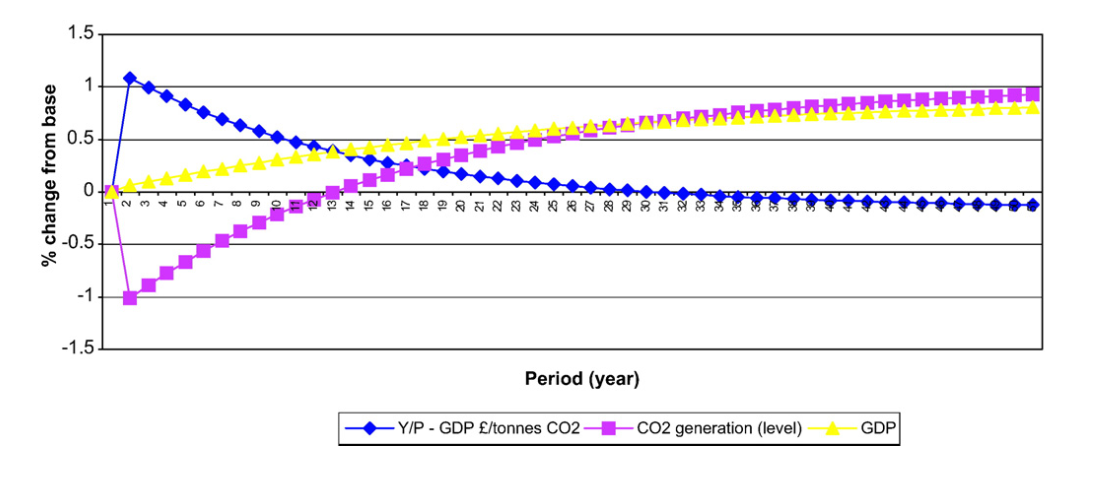In the race to stop global warming and improve energy security, one of the
strongest initiatives politicians can rely on is regulating the energy
efficiency of an economic sector, such as manufacturing, energy generation, or
transportation. Increasing energy efficiency allows us to “do more with less”,
implying that increasing energy efficiency is always a good thing. Not so fast,
claim some economics researchers from the UK. In a study published in 2009, they
found that if energy efficiency of the Scottish economy were increased, the
energy consumption of Scotland would increase as well. The authors attribute
this to two effects, called rebound and backfire.
Rebound and backfire are well researched economic effects, especially as they
relate to the consumption of energy. Put simply, rebound is the case when an
increase in energy efficiency does not cause an equal decrease in energy demand.
Backfire is a special case of rebound where an increase in energy efficiency
causes an increase in energy demand. Prior to this work, there had been several
empirical studies of rebound and backfire in the world economy, but very few
groups had studied the effects systematically through computer simulations. In
the current study, the research group has used a computer program called
AMOSENVI to conduct their simulations.
The AMOSENVI code is a rather complicated beast. It takes as input the specified
sectors of the economy, a percent increase in energy efficiency, and how the
different sectors of the economy interact, as well as how the regional economy
(Scotland in this case) interacts with the economy of the rest of the UK and the
rest of the world. AMOSENVI assumes an initial equilibrium in the economy. When
a simulation is run, the program applies the percent increase in energy
efficiency as a beneficial supply-side shock to the economy. Then it calculates
the effect of this shock by moving forward in time. The indicators from the
simulation use Scottish energy consumption, both in terms of electricity use and
use of non-electricity energy sources, to determine the effect of rebound or
backfire, as well as reporting the ratios of GDP to energy consumption and GDP
to unit of CO2 emissions.
The authors studied the case of 5% improvement in energy efficiency, and varied
the other inputs systematically. In the short and medium term, for all of the
cases, they found significant rebound in electricity consumption and total
non-electricity energy consumption - that is, although they found a decrease in
energy consumption, this decrease did not mirror the increase in energy
efficiency very well. In the long term, for all the cases studied here, the
authors found that increasing energy efficiency actually backfired, and
increased energy consumption! In addition, after about 30 years simulated time,
growth of emissions of CO2 began to increase faster than GDP, another negative
indicator. These results seem to indicate that simply increasing energy
efficiency of sectors is not sufficient to reduce global climate change in the
long term.

Impact of a 5% Increase in Energy Efficiency on Environmental Indicators. Source: Hanley, et al.
Finally, the authors note some of the deficiencies of their study; first, they
only considered the regional economy of Scotland, and larger economies (such as
the whole UK) would experience different effects; second, there may be
trade-offs between local and global environmental concerns resulting from
improvements in energy productivity; third, the information presented by the
indicators they have chosen (i.e. ratios of GDP to energy consumption and CO2
emissions) is not a complete description of the effect of the economy on the
environment. The authors conclude by noting that a combined approach of several
policy initiatives is necessary to produce substantial change in the global
environment, and measures which proclaim to be beneficial in the short-term may
have long-term unintended consequences.
DOI: 10.1016/j.ecolecon.2008.06.004